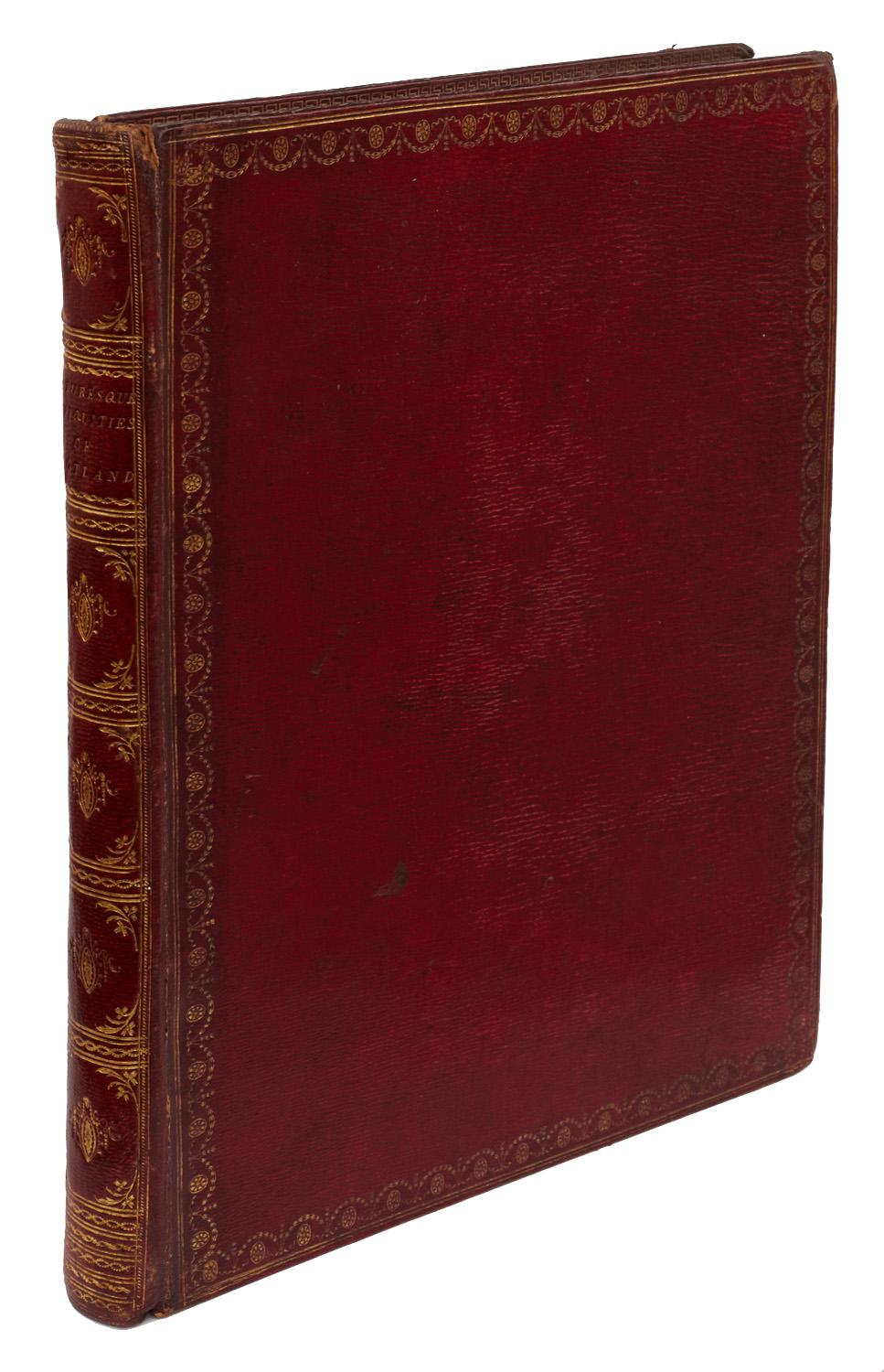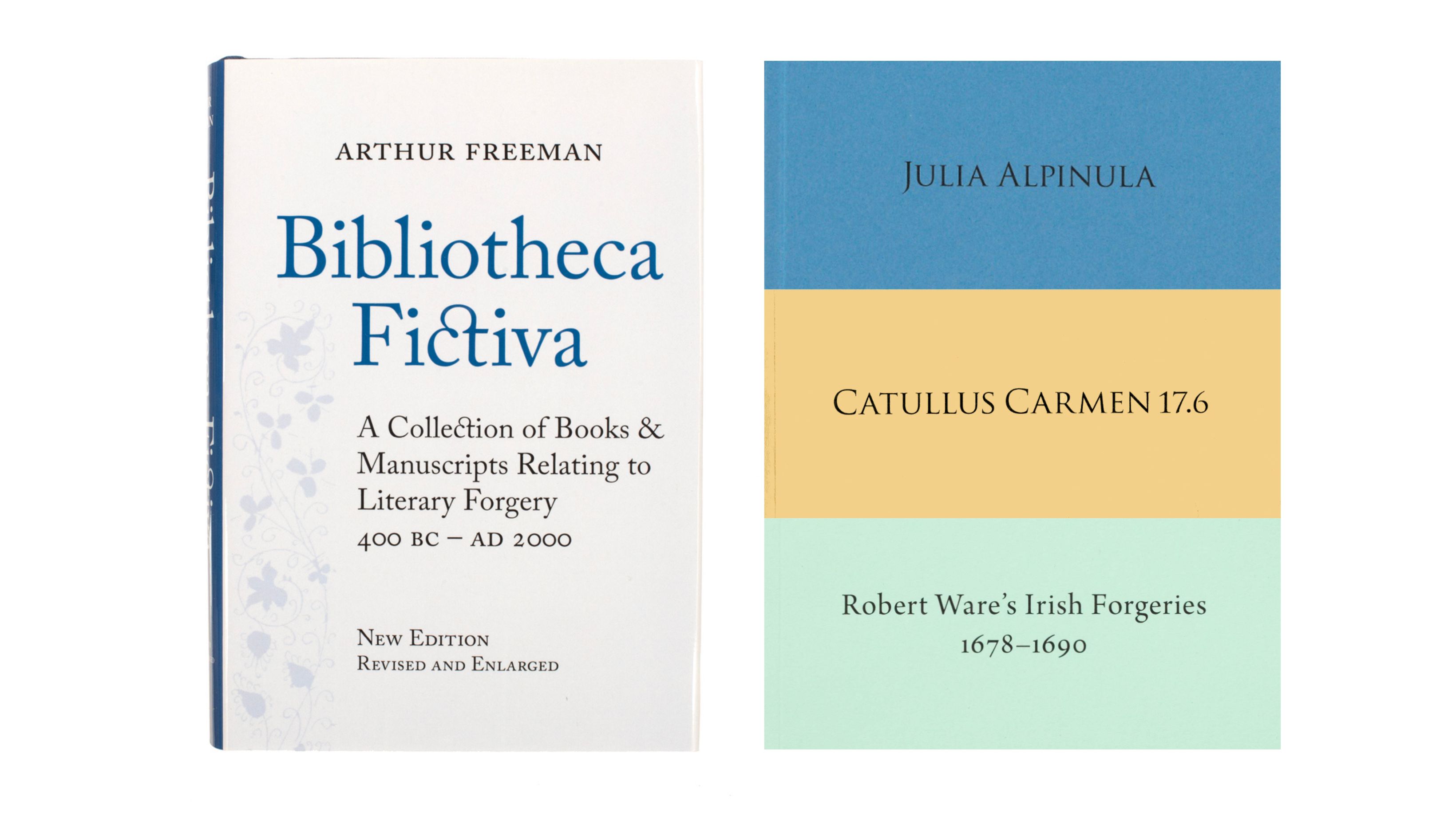
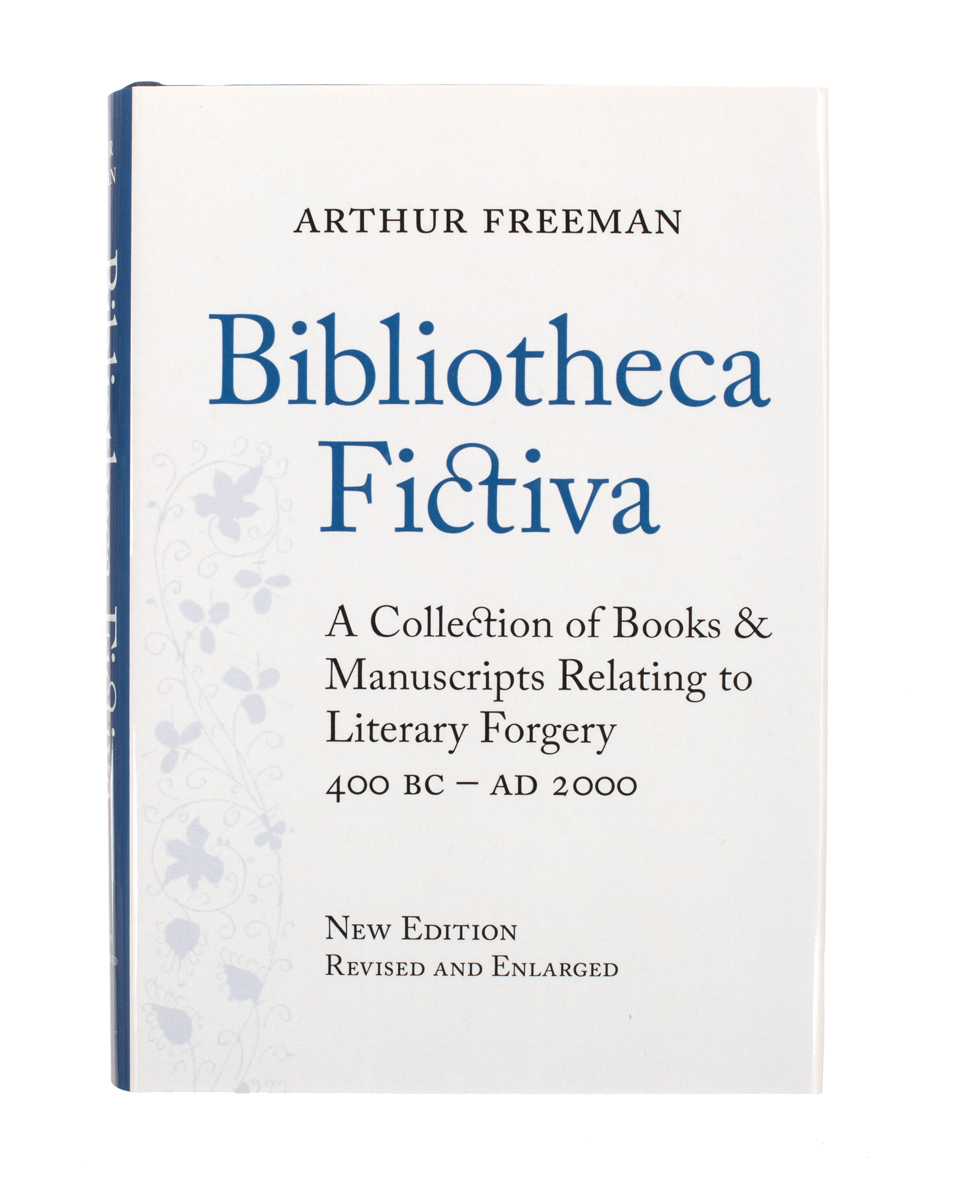
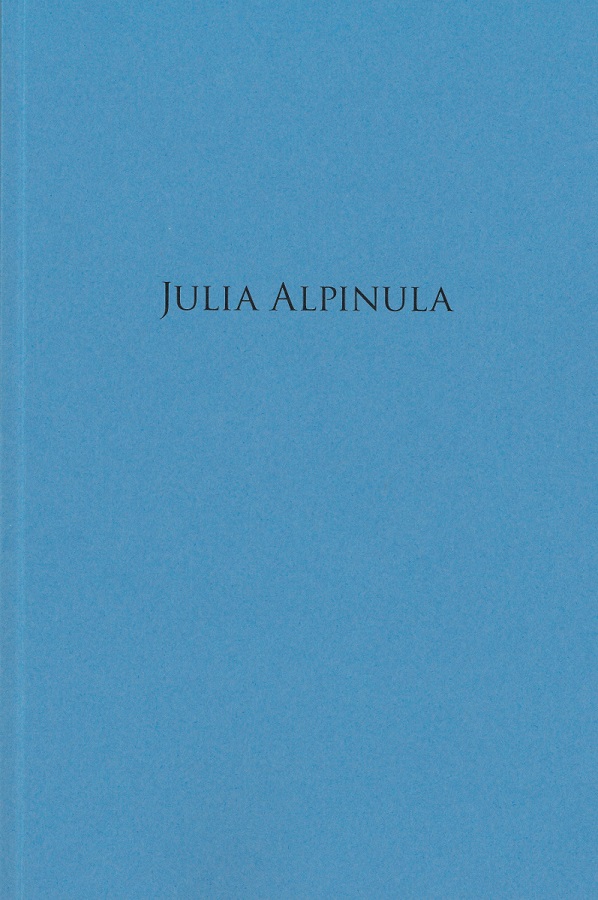
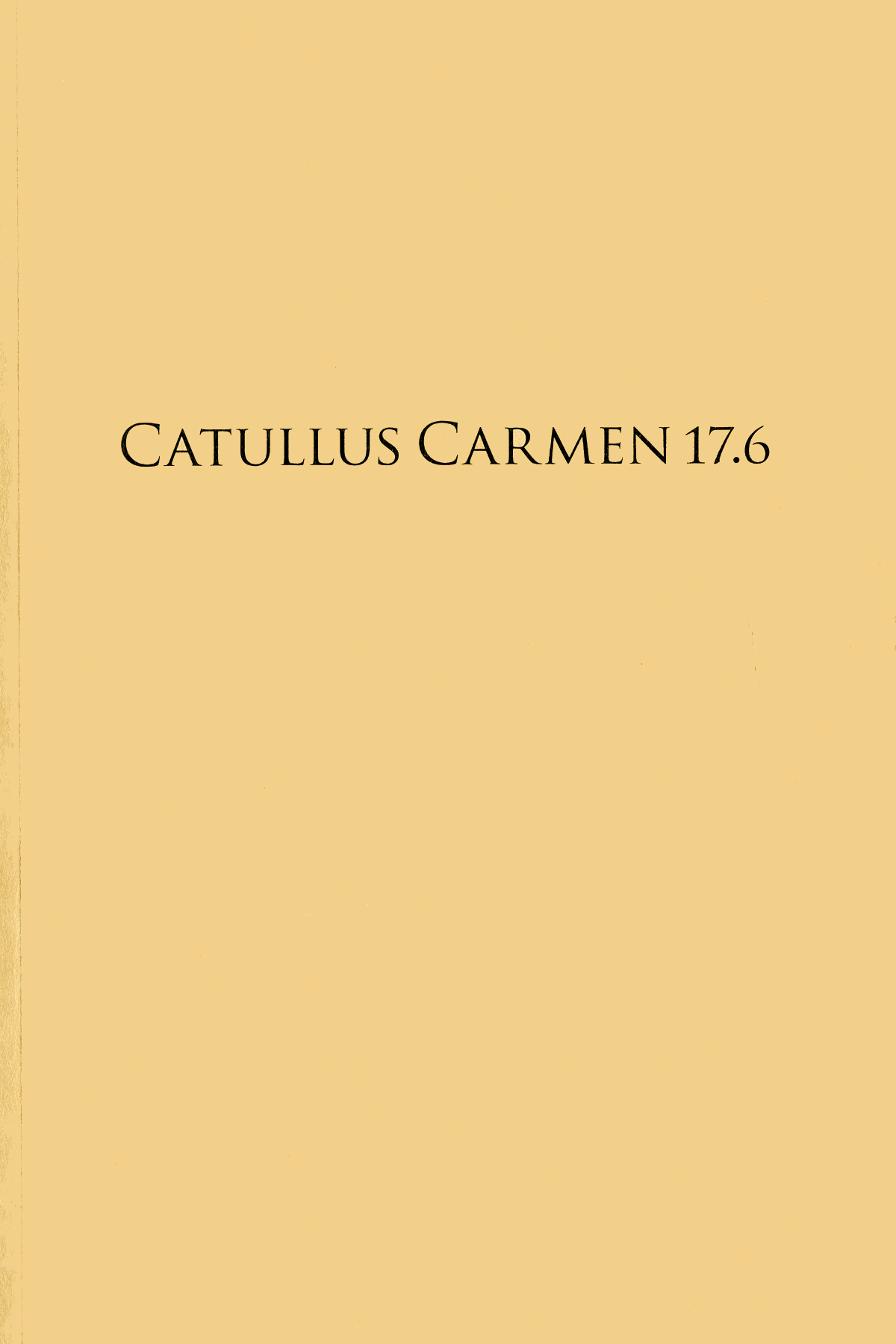
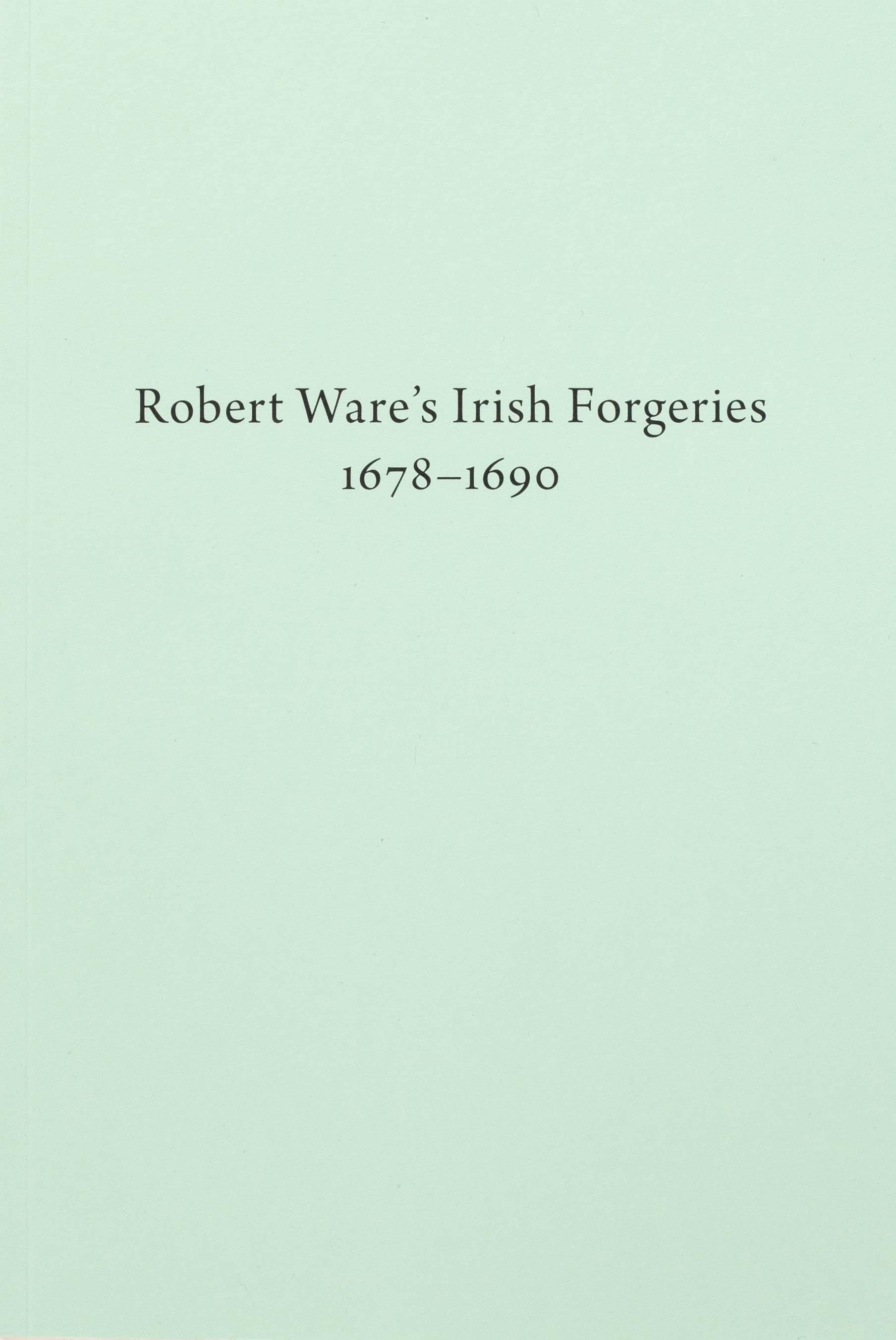
FREEMAN, Arthur.
Bibliotheca Fictiva: A Collection of Books & Manuscripts Relating to Literary Forgery 400 BC – AD 2000.
London, Bernard Quaritch Ltd, 2024.
8vo, pp. xvi, 566, [2 (picture acknowledgements, blank)], with colour frontispiece and 4 black-and-white illustrations in text and a further 40 pp. of colour plates; blue cloth, blocked in bold on spine, printed dustjacket.
£120
US $154 €142
If you wish to order more than one copy of this publication please make an enquiry. Add to basket Make an enquiry

Added to your basket:
Bibliotheca Fictiva: A Collection of Books & Manuscripts Relating to Literary Forgery 400 BC – AD 2000.
The fully revised and enlarged edition of Bibliotheca Fictiva, offered with three in-depth essays on individual forgeries as a complement to the original volume.
Arthur Freeman’s Bibliotheca Fictiva provides a descriptive inventory of a collection of books and manuscripts relating to literary forgery in the Western world over the last twenty-four centuries, now housed in the Sheridan Libraries of Johns Hopkins University. The revised edition adds more than six hundred new entries that introduce some sixty entirely new impostors or subjects of imposture. Individual descriptions have been substantially corrected and updated, and the original ‘Overview’ correspondingly amplified.
Published between 2015 and 2021 as a supplement to the original volume, the three essays offer insights into the forged funerary inscription of the legendary Swiss heroine Julia Alpinula, whose tragic fate was an inspiration to Byron; the early preservation, post-medieval recovery, and Renaissance evolution of the text of Catullus; and the forgeries of the seventeenth-century Irish antiquary Robert Ware, who has been called ‘the most audacious fabricator of historical documents who ever lived’.
FREEMAN, Arthur. Julia Alpinula, Pseudo-Heroine of Helvetia: How a forged Renaissance epitaph fostered a national myth. London, 2015.
Small 8vo, pp. 72, with 4 illustrations; in printed paper wrappers.
FREEMAN, Arthur. Catullus Carmen 17.6 and other Mysteries: A study in editorial conflict, eccentricity, forgery, and restitution, with a checklist of significant printed editions of Catullus in Latin, 1472-2005. London, 2020.
Small 8vo, pp. 86, with 3 illustrations; in printed paper wrappers.
FREEMAN, Arthur. Historical Forgery in Romanophobe Britain: Robert Ware’s Irish fictions revisited. London, 2021.
Small 8vo, pp. 110, with one illustration; in printed paper wrappers.
Also available singly: Bibliotheca Fictiva / Julia Alpinula, Pseudo-Heroine of Helvetia / Catullus Carmen 17.6 and Other Mysteries / Historical Forgery in Romanophobe Britain

